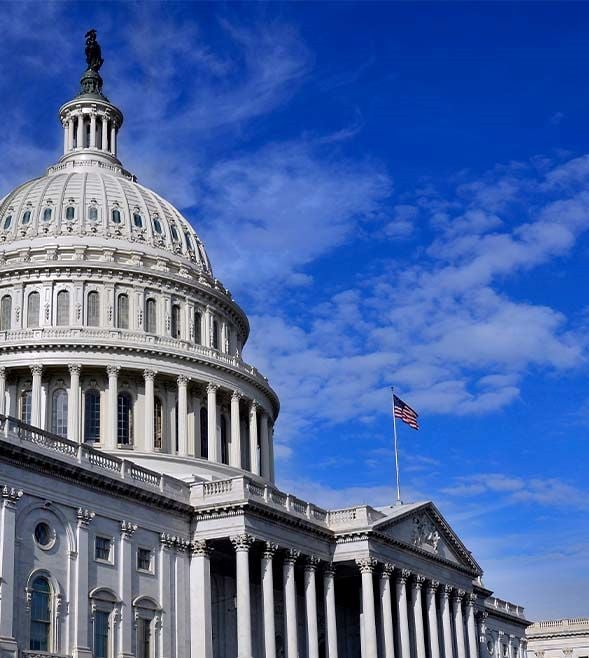-
Financial reporting and accounting advisory services
You trust your external auditor to deliver not only a high-quality, independent audit of your financial statements but to provide a range of support, including assessing material risks, evaluating internal controls and raising awareness around new and amended accounting standards.
-
Accounting Standards for Private Enterprises
Get the clear financial picture you need with the accounting standards team at Doane Grant Thornton LLP. Our experts have extensive experience with private enterprises of all sizes in all industries, an in-depth knowledge of today’s accounting standards, and are directly involved in the standard-setting process.
-
International Financial Reporting Standards
Whether you are already using IFRS or considering a transition to this global framework, Doane Grant Thornton LLP’s accounting standards team is here to help.
-
Accounting Standards for Not-for-Profit Organizations
From small, community organizations to large, national charities, you can count on Doane Grant Thornton LLP’s accounting standards team for in-depth knowledge and trusted advice.
-
Public Sector Accounting Standards
Working for a public-sector organization comes with a unique set of requirements for accounting and financial reporting. Doane Grant Thornton LLP’s accounting standards team has the practical, public-sector experience and in-depth knowledge you need.
-
Tax planning and compliance
Whether you are a private or public organization, your goal is to manage the critical aspects of tax compliance, and achieve the most effective results. At Doane Grant Thornton, we focus on delivering relevant advice, and providing an integrated planning approach to help you fulfill compliance obligations.
-
Research and development and government incentives
Are you developing innovative processes or products, undertaking experimentation or solving technological problems? If so, you may qualify to claim SR&ED tax credits. This Canadian federal government initiative is designed to encourage and support innovation in Canada. Our R&D professionals are a highly-trained, diverse team of practitioners that are engineers, scientists and specialized accountants.
-
Indirect tax
Keeping track of changes and developments in GST/HST, Quebec sales tax and other provincial sales taxes across Canada, can be a full-time job. The consequences for failing to adequately manage your organization’s sales tax obligations can be significant - from assessments, to forgone recoveries and cash flow implications, to customer or reputational risk.
-
US corporate tax
The United States has a very complex and regulated tax environment, that may undergo significant changes. Cross-border tax issues could become even more challenging for Canadian businesses looking for growth and prosperity in the biggest economy in the world.
-
Cross-border personal tax
In an increasingly flexible world, moving across the border may be more viable for Canadians and Americans; however, relocating may also have complex tax implications.
-
International tax
While there is great opportunity for businesses looking to expand globally, organizations are under increasing tax scrutiny. Regardless of your company’s size and level of international involvement—whether you’re working abroad, investing, buying and selling, borrowing or manufacturing—doing business beyond Canada’s borders comes with its fair share of tax risks.
-
Transfer pricing
Transfer pricing is a complex area of corporate taxation that is concerned with the intra-group pricing of goods, services, intangibles, and financial instruments. Transfer pricing has become a critical governance issue for companies, tax authorities and policy makers, and represents a principal risk area for multinationals.
-
Succession & estate planning
Like many private business owners today, you’ve spent your career building and running your business successfully. Now you’re faced with deciding on a successor—a successor who may or may not want your direct involvement and share your vision.
-
Tax Reporting & Advisory
The financial and tax reporting obligations of public markets and global tax authorities take significant resources and investment to manage. This requires calculating global tax provision estimates under US GAAP, IFRS, and other frameworks, and reconciling this reporting with tax compliance obligations.

-
Transactions
Our transactions group takes a client-centric, integrated approach, focused on helping you make and implement the best financial strategies. We offer meaningful, actionable and holistic advice to allow you to create value, manage risks and seize opportunities. It’s what we do best: help great organizations like yours grow and thrive.
-
Restructuring
We bring a wide range of services to both individuals and businesses – including shareholders, executives, directors, lenders, creditors and other advisors who are dealing with a corporation experiencing financial challenges.
-
Forensics
Market-driven expertise in investigation, dispute resolution and digital forensics
-
Cybersecurity
Viruses. Phishing. Malware infections. Malpractice by employees. Espionage. Data ransom and theft. Fraud. Cybercrime is now a leading risk to all businesses.
-
Consulting
Running a business is challenging and you need advice you can rely on at anytime you need it. Our team dives deep into your issues, looking holistically at your organization to understand your people, processes, and systems needs at the root of your pain points. The intersection of these three things is critical to develop the solutions you need today.
-
Creditor updates
Updates for creditors, limited partners, investors and shareholders.

-
Governance, risk and compliance
Effective, risk management—including governance and regulatory compliance—can lead to tangible, long-term business improvements. And be a source of significant competitive advantage.
-
Internal audit
Organizations thrive when they are constantly innovating, improving or creating new services and products and envisioning new markets and growth opportunities.
-
Certification – SOX
The corporate governance landscape is challenging at the best of times for public companies and their subsidiaries in Canada, the United States and around the world.
-
Third party assurance
Naturally, clients and stakeholders want reassurance that there are appropriate controls and safeguards over the data and processes being used to service their business. It’s critical.
-
 Assurance Important changes coming to AgriInvest in 2025AgriInvest is a business risk management program that helps agricultural producers manage small income declines and improve market income.
Assurance Important changes coming to AgriInvest in 2025AgriInvest is a business risk management program that helps agricultural producers manage small income declines and improve market income. -
 ASPE Sec. 3041 Agriculture Understanding and applying the new ASPE Section 3041 AgricultureThe Canadian Accounting Standards Board (AcSB) has released new guidance on recognizing, measuring and disclosing biological assets and the harvested products of bio assets.
ASPE Sec. 3041 Agriculture Understanding and applying the new ASPE Section 3041 AgricultureThe Canadian Accounting Standards Board (AcSB) has released new guidance on recognizing, measuring and disclosing biological assets and the harvested products of bio assets. -
 Tax alert Agricultural Clean Technology ProgramThe Agricultural Clean Technology Program will provide financial assistance to farmers and agri-businesses to help them reduce greenhouse gas (GHG) emissions.
Tax alert Agricultural Clean Technology ProgramThe Agricultural Clean Technology Program will provide financial assistance to farmers and agri-businesses to help them reduce greenhouse gas (GHG) emissions. -
 Tax alert ACT Program – Research and Innovation Stream explainedThe ACT Research and Innovation Stream provides financial support to organizations engaged in pre-market innovation.
Tax alert ACT Program – Research and Innovation Stream explainedThe ACT Research and Innovation Stream provides financial support to organizations engaged in pre-market innovation.
-
Builders And Developers
Every real estate project starts with a vision. We help builders and developers solidify that vision, transform it into reality, and create value.
-
Rental Property Owners And Occupiers
In today’s economic climate, it’s more important than ever to have a strong advisory partner on your side.
-
Real Estate Service Providers
Your company plays a key role in the success of landlords, investors and owners, but who is doing the same for you?

-
Mining
There’s no business quite like mining. It’s volatile, risky and complex – but the potential pay-off is huge. You’re not afraid of a challenge: the key is finding the right balance between risk and reward. Whether you’re a junior prospector, a senior producer, or somewhere in between, we’ll work with you to explore, discover and extract value at every stage of the mining process.
-
Oil & gas
The oil and gas industry is facing many complex challenges, beyond the price of oil. These include environmental issues, access to markets, growing competition from alternative energy sources and international markets, and a rapidly changing regulatory landscape, to name but a few.

Updated: March 27, 2025
Taxpayers should plan for the capital gains inclusion rate to stay the same at 50%. The 2024 federal budget proposed an increase of the capital gains inclusion rate to 66.67% (from 50%) effective June 25, 2024, amongst other measures. However, given the prorogation of parliament between January 6 and March 24, 2025, the future of this proposed change has been uncertain.
In the run-up to the federal election slated for April 28, 2025, the leaders of the Liberal Party of Canada and the Conservative Party of Canada have both stated that they will not be reintroducing this proposed measure; therefore, it likely won’t be enacted into law.
If you need additional guidance on how this will impact your current or future tax planning, contact your local advisor or reach out to us here.
Disclaimer
The information contained herein is general in nature and is based on proposals that are subject to change. It is not, and should not be construed as, accounting, legal or tax advice or an opinion provided by Doane Grant Thornton LLP to the reader. This material may not be applicable to, or suitable for, specific circumstances or needs and may require consideration of other factors not described herein.
Get the latest information in your inbox.
Subscribe to receive relevant and timely information and event invitations.


